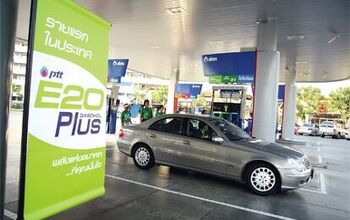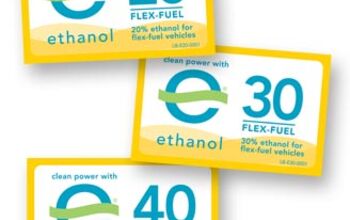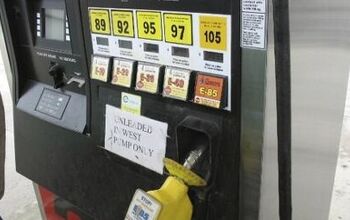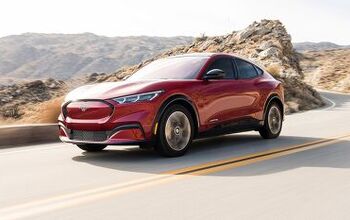E85 Boondoggle of the Day: Resurrection
President Obama gave the dying ethanol industry a huge shot in the arm Tuesday when he announced that over $780 million of stimulus money will be spent on biofuel “research and commercialization,” guided by an all-new Biofuels Interagency Working Group. Think of a giant, government-funded R&D/marketing department for the ethanol industry, and you’ll have some idea of what we’re looking at. “We need to work in concert with the industry to figure out how to do a better job to create a market for biofuels, how to increase the use of flex-fuel vehicles, how we can assist those who market, and to coordinate the infrastructure, and do all this in a sustainable way,” says Agriculture Secretary, Tom Vilsack. Unfortunately “creating a market” isn’t easy. The US already spends more on ethanol subsidies than any other renewable energy source, and has been rewarded only with crashing ethanol demand and rampant refinery bankruptcies. Good thing hope springs eternal in the breast of K Street.
The usual window dressing of biomass-based “next-gen” biofuels rules the day, rhetoric-wise. But cellulosic ethanol is still dangling somewhere in the future, a lure to justify short-term handouts for King Corn. According to the EPA’s proposed rule revisions (also announced at EthanolFest2009), however, 15 billion gallons of the 36 billion renewable fuels mandate will still be corn ethanol in 2020. And like any good lobby, the ethanol lobby isn’t satisfied with the handout it has. Bryan Jennings of the American Coalition For Ethanol goes as far as to identify E10 as the problem “standing in the way of President Obama’s vision.” Why? Because if ethanol blends aren’t increased to E15, E20 or E30, the ethanol companies won’t be able to fund (with the increased blender’s credit money) research of cellulosic ethanol. Because it’s not like the government is helping with that.
See the ethanol lobby laughing maniacly at this news at Growth Energy’s Youtube page.
More by Edward Niedermeyer
Latest Car Reviews
Read moreLatest Product Reviews
Read moreRecent Comments
- Analoggrotto TTAC never misses a chance to give Hyundai Kia maximum exposure. Hey, can't say I blame ya, gotta pay for that GT3RS somehow.
- Bpscarguy Maryland!!!!!
- Canam23 I had three Taurus wagons over a span of eleven years as company cars. All were midline models, (GL) with the 3.0 Vulcan motor. I put about 33K miles a year on them and to be honest, I liked them. They were comfortable, roomy, safe, handled reasonably well and I liked the look of the wagon. The key was to work deal on an extended warranty to cover the inevitable transmission failure at about 85K miles. Other than that they were very reliable for me.
- 28-Cars-Later Next stop after will be Shanghai.
- Kjhkjlhkjhkljh kljhjkhjklhkjh since most EVs are north of 70k specc'ed out + charger installation this is not news. You don't buy a new car every few years.This is simply saturation and terrible horrible third world country level grid infrastructure (thanks greedy exces like at the holiday farm fire where I live)

































Comments
Join the conversation
Ladies and Gentlemen you are all quite correct in the fact that Ethanol fuel for our cars and trucks is not good stuff, not as it stands now. I do wish to play devil's advocate on two points: 1. Ethanol is not so good now unless you have an E85 burning car. I myself do not so I drive cross the state line to MO to get my petrol. It is my understanding that the funding is to be used to further the science to make it more pleasable to your engine. Remember we already went down a very similiar road when we all switched to Unleaded gasoline in the 70's. 2. Ethanol fuel is actually better used as fuel for power plants as it stands today. The future it seems, is to go in two direction with Corn/Plant based fuels; Power generation that will charge your electric and a diesel-esque for those of us who like them and the trucking industry.
These darn prostitutians are confused, and their confusion will cost us a LOT of $$$. The aim is to replace oil, not gasoline or diesel. Ethanol gets you part of the way, since most of the time you are replacing oil with (mostly) natural gas. Of course a CNG vehicle would be an easier way to achieve that. Biofuels, if they are even to make a postive contribution, should be waste-based (not food-based) and should be converted into the same gasoline and diesel that we all use (or at least into something that is completely miscible with existing fuels, like butanol). That way you don't have to replace the vehicle fleet OR the fuel distribution network, saving many $$$. Perish the thought...